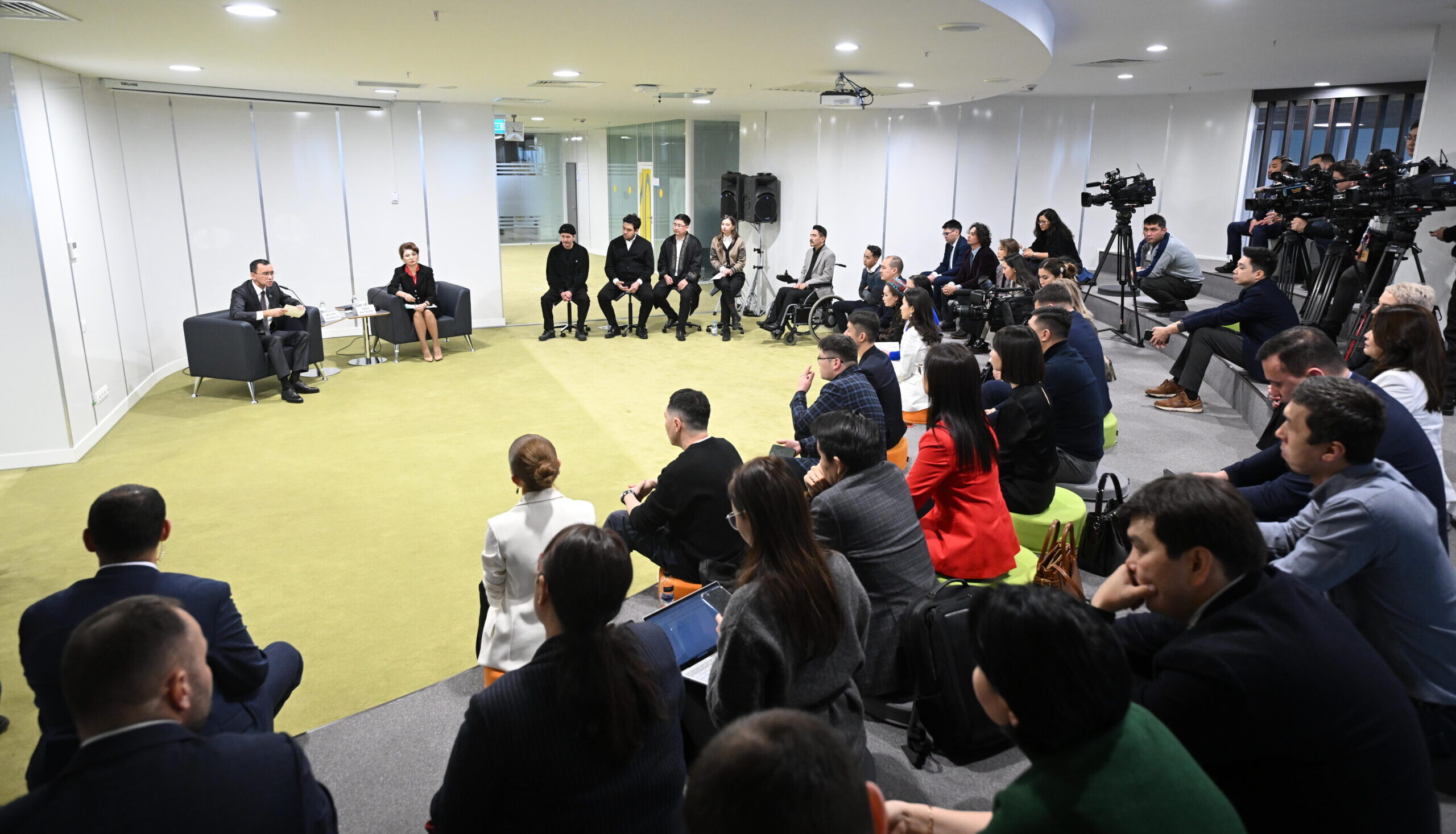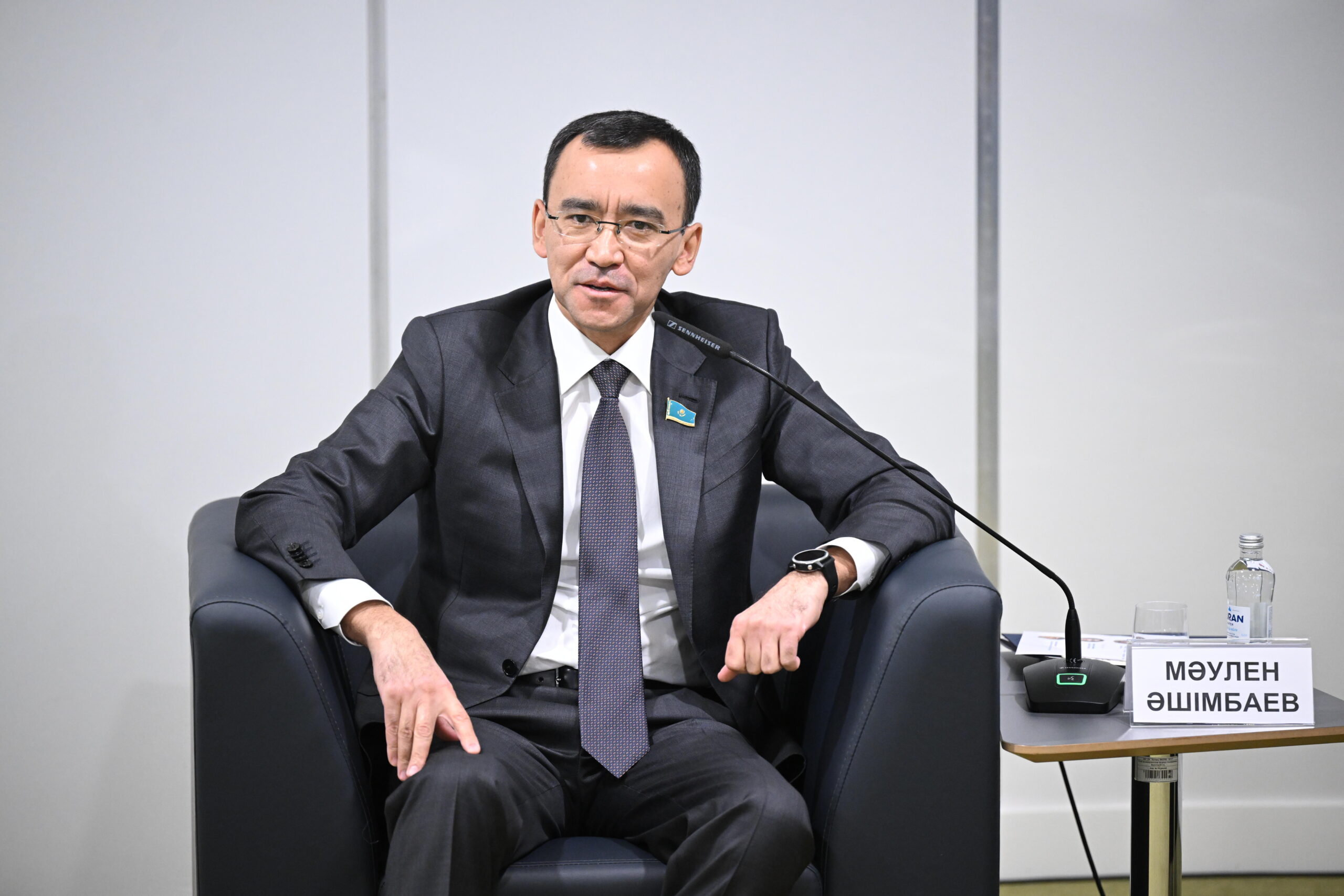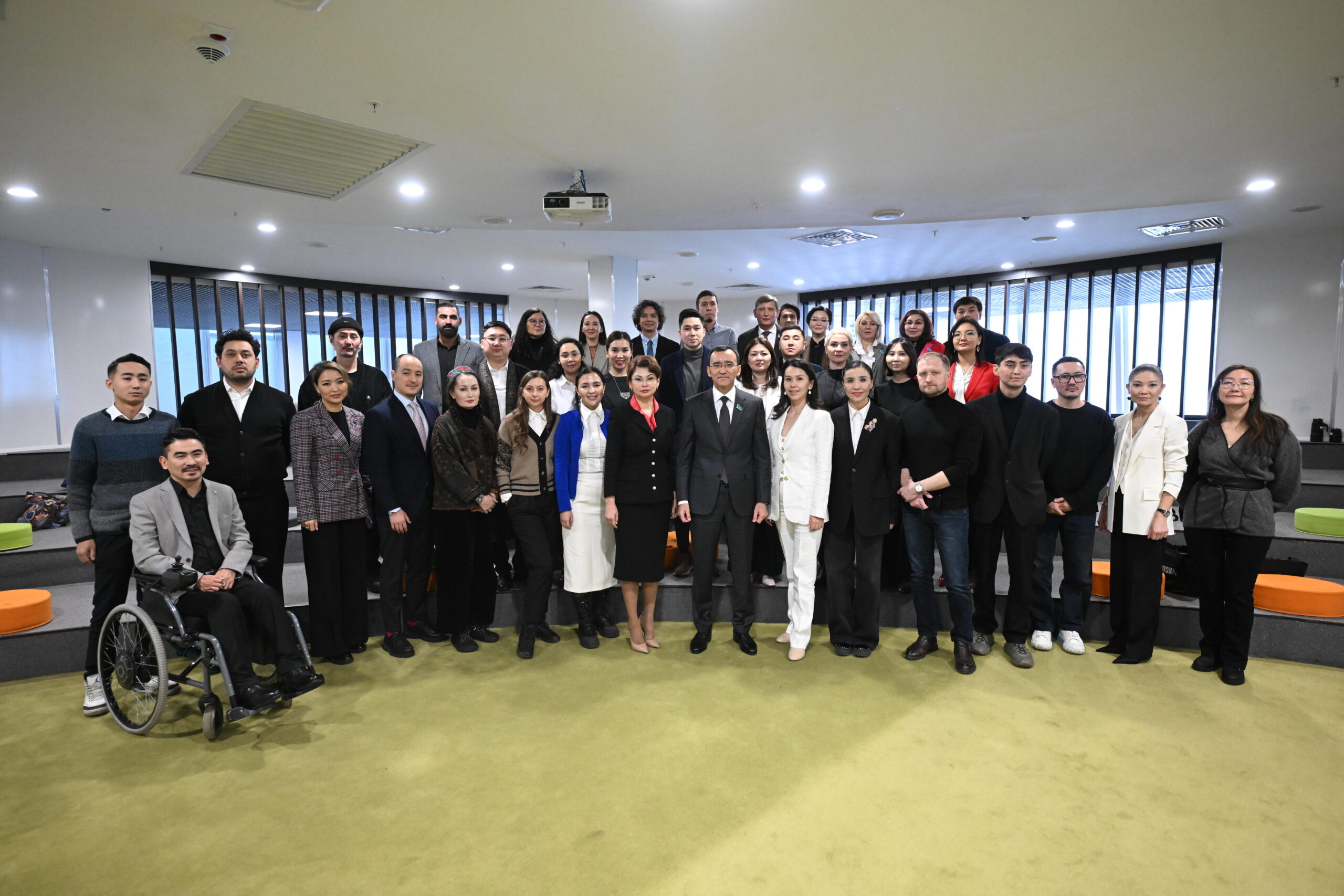ASTANA – The club of young experts under the Senate, an upper chamber of the Kazakh Parliament, analyzed the legal environment and prospects for developing creative industries in Kazakhstan on Dec. 6, reported the Senate’s press office.

Photo credit: senate.parlam.kz.
In his September state-of-the-nation address, President Kassym-Jomart Tokayev advocated for the creative economy’s expansive growth, setting a task for the government to enhance the legal framework and improve conditions for its development in Kazakhstan.
“Government agencies should carry out comprehensive work, including the creation of legal conditions, the development of creative projects in the country’s regions, and assistance in the commercialized production,” said Senate Speaker Maulen Ashimbayev, chairing the meeting.
Ashimbayev noted the ongoing preparation of amendments to the country’s legislation. “As part of this work, it is imperative to build a productive dialogue between deputies, representatives of state institutions, the creative industry, as well as experts,” he said.

Kazakh Senate Speaker Maulen Ashimbayev. Photo credit: senate.parlam.kz.
The potential for the creative economy’s development, according to Ashimbayev, is high. He underlined citizens’ creative and intellectual capital, a resource for developing an inclusive economy.
At the same time, Ashimbayev noted that the creative industries’ contribution to gross domestic product (GDP) in Kazakhstan does not reach even 1% today. The share in the employment structure is also low.
The discussions were focused explicitly on the legislative changes to facilitate the management of creative industries.
“A group of parliamentarians is working on the amendments to the Law on Culture and the Law on Copyright and Related Rights,” said Ashimbayev, calling on interested parties to join the chamber’s legislative work.
Last year, Kazakhstan introduced the concepts of creative activity and creative industries by amending the Law on Culture and the Entrepreneurial Code. As a result, creative industries are now considered part of the country’s private business sector, requiring state support.

Photo credit: senate.parlam.kz.
In June, the Kazakh Ministry of Tourism and Sports (the former Kazakh Ministry of Culture and Sports) presented a list of 43 creative activities, including cinema, animation, contemporary art, jewelry, IT and game development, television programs, photography, architecture and fashion, music, and cultural heritage.
During the meeting, Kazakh Minister of Culture and Information Aida Balayeva spoke about comprehensive measures to step up the development of the creative industry and startup projects.
One of the priorities, she noted, is the shift of attention from large cities to regions so that in each regional center or city, specialists could work with local talents and unlock their potential. She also noted the fundamental importance of positioning intellectual property in the same way as equipment or technology generating added value.
Irina Kharitonova, the research expert on cultural and creative industries in Central Asia, the Commonwealth of Independent States (CIS), and Europe, also participated in the discussions. In a recent interview with The Astana Times, she spoke about Kazakhstan’s cultural initiatives, Central Asian nomadism, and international practice in mapping the creative industries’ landscape.

